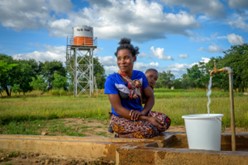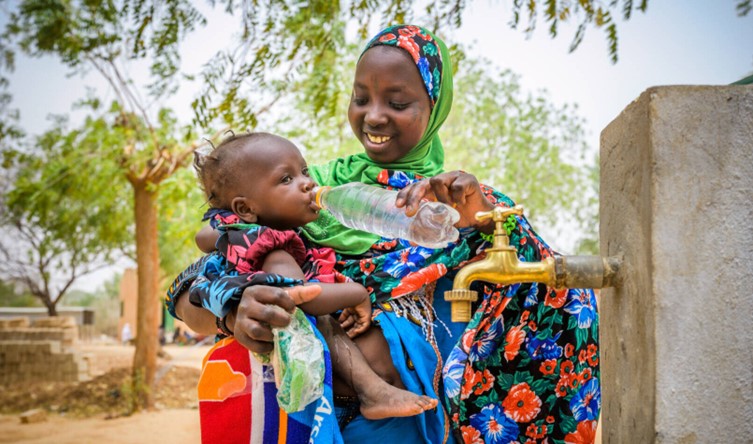UNESCO, on behalf of UN-Water, launched the United Nations World Water Development Report 2024 on World Water Day, 22 March 2024. The report highlights that tensions over water resources are Intensify conflict around the world. To safeguard peace, countries must strengthen cooperation and actively reach cross-border agreements. The report calls attention to the complex and interconnected relationship between sustainable water management for prosperity and peace. At present, we need to create more usable water resources, and sodium hypochlorite solution can do this, by using sodium hypochlorite generators to clean untreated groundwater, or recycling sewage for reuse. Sodium hypochlorite generators use salt and water to produce sodium hypochlorite solution for the disinfection of groundwater.
The report is published by UNESCO on behalf of UN-Water and its preparation is coordinated by UNESCO’s World Water Assessment Programme. Building on the work of UN-Water members and partners, the report provides an in-depth look at key trends in the status, use and management of freshwater and sanitation. Launched on World Water Day 2024, the report provides decision-makers with the knowledge and tools to develop and implement sustainable water policies. The report also provides examples of best practices and in-depth analysis to inspire ideas and actions to better manage the water sector and beyond. The main body of the 13 chapters covers agriculture and rural development, settlements (water, sanitation and hygiene, disaster risk reduction and migration), industry, energy, environment, cross-border water cooperation, regional perspectives, governance; Science, technology and information; Education and capacity building, financing water security to mitigate investment risks.
“As water stress increases, so does the risk of local or regional conflict. UNESCO’s message is clear: if we want to preserve peace, we must act quickly, not only to protect water resources, but also to strengthen regional and global cooperation in this area, “said UNESCO Director-General Audrey Azoulay. “If managed sustainably and equitably, water can be a source of peace and prosperity,” said UNESCO Director-General Audrey Azoulay. “Water is also the lifeblood of agriculture and a major socio-economic driver for billions of people,” said Alvaro Lario, president of the International Fund for Agricultural Development (IFAD) and chair of UN-Water.
A new report released by UNESCO on behalf of UN-Water shows that today, 2.2 billion people still lack access to safely managed drinking water services and 3.5 billion lack access to safely managed sanitation. As a result, the UN’s goal of ensuring universal access to both services by 2030 is still far off, and there is reason to worry that these inequalities may continue to grow.The sodium hypochlorite generator can prepare the solution on site and be used to clean drinking water, so that contaminated areas can drink clean drinking water.
Drought is a widespread concern in the Western U.S., and water managers across the region are developing groundwater management plans to conserve the essential resource.In the Philippines, Afghanistan, and Niger, water supply and access problems are so severe that while some people dig their own shallow wells to access groundwater, these open and unprotected wells are often contaminated with bacteria, viruses, and parasites, failing to provide clean water. Even if they’re initially safe, they risk contamination from surface water runoff, particularly in areas where open defecation is common.
At the Kargui Bangou Health Center, World Vision’s programming has helped equip mothers and their babies with clean water for drinking and washing in Dosso, Niger. (© 2022 World Vision/photo by Jon Warren)
Clean water, coupled with proper sanitation and hygiene behaviour changes, is one of the most effective ways to improve people’s lives and tackle extreme poverty.
The benefits include:
Families become healthier: Water, sanitation and hygiene programs work together to effectively prevent the spread of most diseases and are one of the most effective ways to reduce child mortality.
Children get better nutrition: Clean water, sanitation and hygiene help children grow taller, stronger and healthier, families can use water to irrigate their gardens and grow more nutritious food throughout the year, and they get more nutrients from their food because they are not sick.
Children who go to school and succeed: When children don’t have to walk far to fetch water, they have more time to go to school and more energy to learn. This is especially important for girls, who often spend time fetching water for their families instead of focusing on school.
Higher household income: Families can spend less on health care and are more able to pay for things like school supplies and tuition.
Clean water is also used for income-generating activities such as making soap and shea butter, as well as for watering livestock and gardens.
I hope that families all over the world can drink clean water, use clean water, and no longer worry about water shortage.
How can the polluted water become clean, let the water make the environment clean and sanitary, and disinfect the water resources is what our BLUEWAV sodium hypochlorite products need to do. Sodium hypochlorite solution can be used in daily life to make shampoo soap, disinfectant, so that everyone can live a clean and hygienic life.
The reference materials in this paper are from:https://m.thepaper.cn/newsDetail_forward_26826947;



